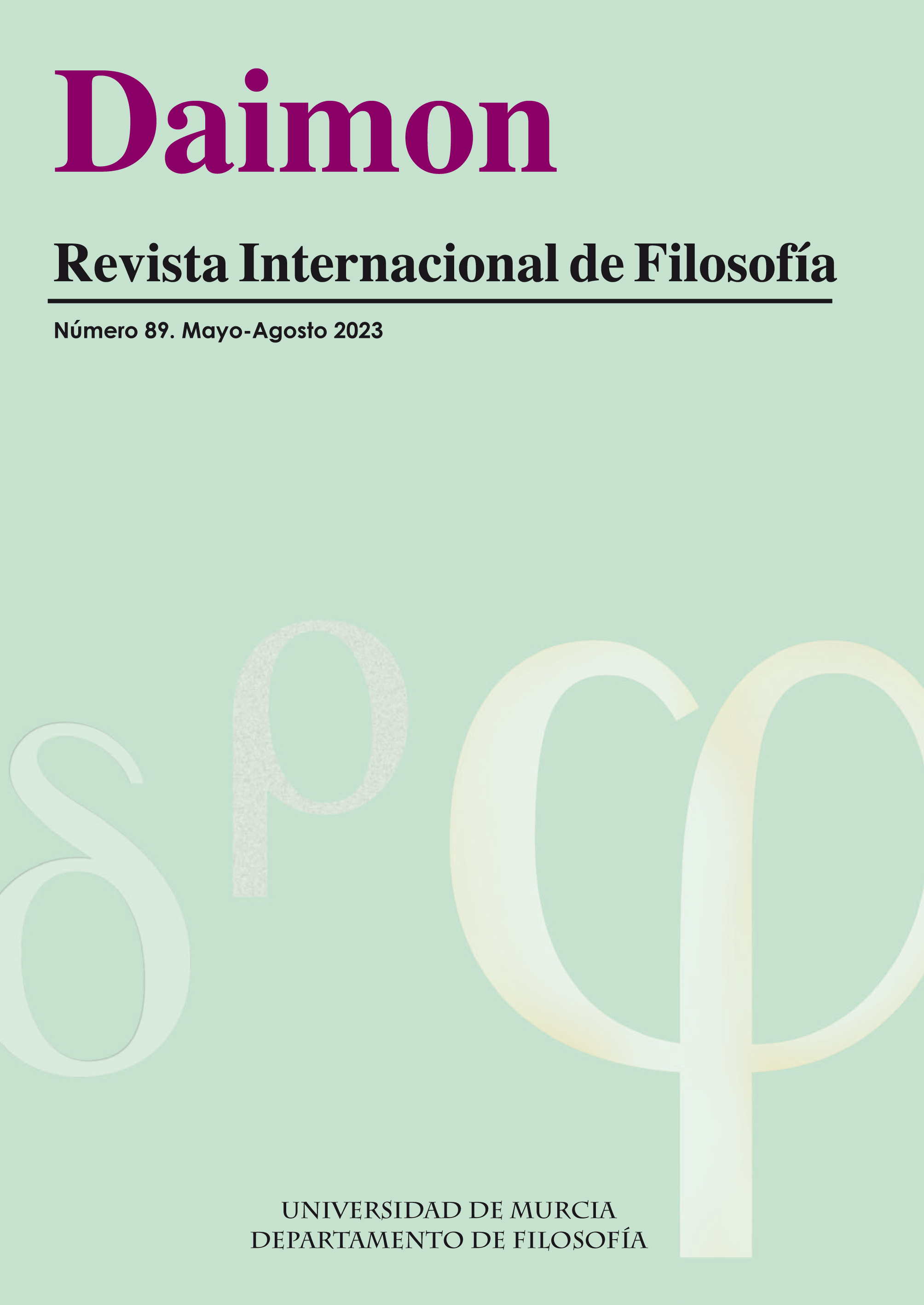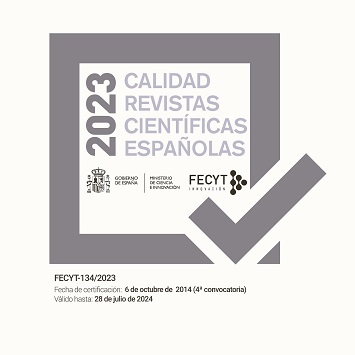Figures of romantic Irony. The philosophical Reception of Romanticism beyond Modernity
Abstract
This paper deals with the philosophical reception of romantic irony. It focuses on three main points: (1) the critic of irony as a negative infinity by Hegel and Kierkegaard; (2) the linkages of irony with an apolitical attitude in Carl Schmitt and Georg Lukács; and (3) the apropiation of irony by deconstruction theory. As the paper proposes, only the reconsideration of some some main aspects from the modernity allowed the recognition of the romantic aesthetic dimensión.
Downloads
References
Adorno, Th. W. (2006), Kierkegaard. Construcción de lo estético, Madrid: Akal.
Alfaro, C. V. (2019), “Similitudes y diferencias entre la ironía romántica y la figura del espíritu alma bella”, Ágora. Papeles de filosofía, 38/1, pp. 57-78.
Berlin, Isaiah (2015), Las raíces del Romanticismo, Madrid: Taurus.
Bloom, H. (2010), “La desintegración de la forma”, en Deconstrucción y crítica, Madrid. Akal, pp.11-46.
Bognar, Z (2014), “Die frühen Essays von Georg Lukács als Auseinandersetzung mit dem frühromantischen Begriff der Kritik”, Athenäum, 24, pp. 45-71.
Bohrer, K.-H. (2017), La crítica al Romanticismo, Buenos Aires: Prometeo.
Bürger, P. (2009), Teoría de la vanguardia, Buenos Aires: Las Cuarenta.
De Man, P (1998), La ideología estética, Madrid: Cátedra.
De Man, P. (1990), Alegorías de la lectura, Barcelona: Lumen.
Derrida, J. (2007), La diseminación, Madrid; Fundamentos.
Eagleton, T. (2006), La estética como ideología, Madrid: Trotta.
Frank, M. (1997), Unendliche Annährung, Frankfurt a. M: Suhrkamp.
Galfione, M. V. (2018), “El concepto de subjetividad estética en el planteamiento de Karl Heinz Bohrer”, Ideas y Valores, 67 (167), pp. 81-102.
Garnika, N. (2019), Romanticismo, modernismo y subjetividad, Tesis doctoral, Universidad Nacional de Catamara.
Habermas, J. (1954), Das Absolute in der Geschichte: von der Zweispaltigkeit in Schellings Denken, Bonn: Bouvier.
Hegel, G. W. F. (1986), Werke, Frankfurt a. M: Suhrkamp (GW).
Hühn, L. (1996), “Das Schweben der Einbildungskraft. Zur frühromantischen Überbietung Fichtes”, Deutsche Vierteljahresschrift für Luteraturwissenschaft und Geistesgeschichte, 70-4, pp. 569-599.
Kierkegaard, S. (2018), In vino veritas, Madrid: Alianza.
Kierkegaard, S. (2000), Escritos, vol. 1, Madrid: Trotta.
Korngiebel, J. (2020), “Hegel as an Attendee of Schlegels Lectures on Trascendental Philosophy” en Jena, Romanticism, Philosophy and Literature, Michael N. Forster y Lina Steiner (eds.), Springer, pp. 119-134.
Koselleck, R. (1993), Futuro pasado: para una semántica de los tiempos históricos, Barcelona: Paidós.
Lukács, G. (1970), Historia y conciencia de clase, La Habana: Editorial de Ciencias Sociales.
Lukács, G. (1968), El asalto a la razón. La trayectoria del irracionalismo desde Schelling hasta Hitler, Barcelona: Grijalbo.
Lukács, G. (1947), Fortschritt und Reaktion in der deutschen Literatur, Berlín: Aufbau.
Menke, Ch. (2013), Estética y negatividad, México: Fondo de Cultura Económico.
Starobinski (2017), La tinta de la melancolía, México: Fondo de Cultura Económico.
Copyright (c) 2023 Daimon Revista Internacional de Filosofia

This work is licensed under a Creative Commons Attribution-NonCommercial-NoDerivatives 3.0 Unported License.
Las obras que se publican en esta revista están sujetas a los siguientes términos:
1. El Servicio de Publicaciones de la Universidad de Murcia (la editorial) conserva los derechos patrimoniales (copyright) de las obras publicadas, y favorece y permite la reutilización de las mismas bajo la licencia de uso indicada en el punto 2.
2. Las obras se publican en la edición electrónica de la revista bajo una licencia Creative Commons Reconocimiento-NoComercial-SinObraDerivada 3.0 España (texto legal). Se pueden copiar, usar, difundir, transmitir y exponer públicamente, siempre que: i) se cite la autoría y la fuente original de su publicación (revista, editorial y URL de la obra); ii) no se usen para fines comerciales; iii) se mencione la existencia y especificaciones de esta licencia de uso.
3. Condiciones de auto-archivo. Se permite y se anima a los autores a difundir electrónicamente las versiones pre-print (versión antes de ser evaluada) y/o post-print (versión evaluada y aceptada para su publicación) de sus obras antes de su publicación, ya que favorece su circulación y difusión más temprana y con ello un posible aumento en su citación y alcance entre la comunidad académica. Color RoMEO: verde.













